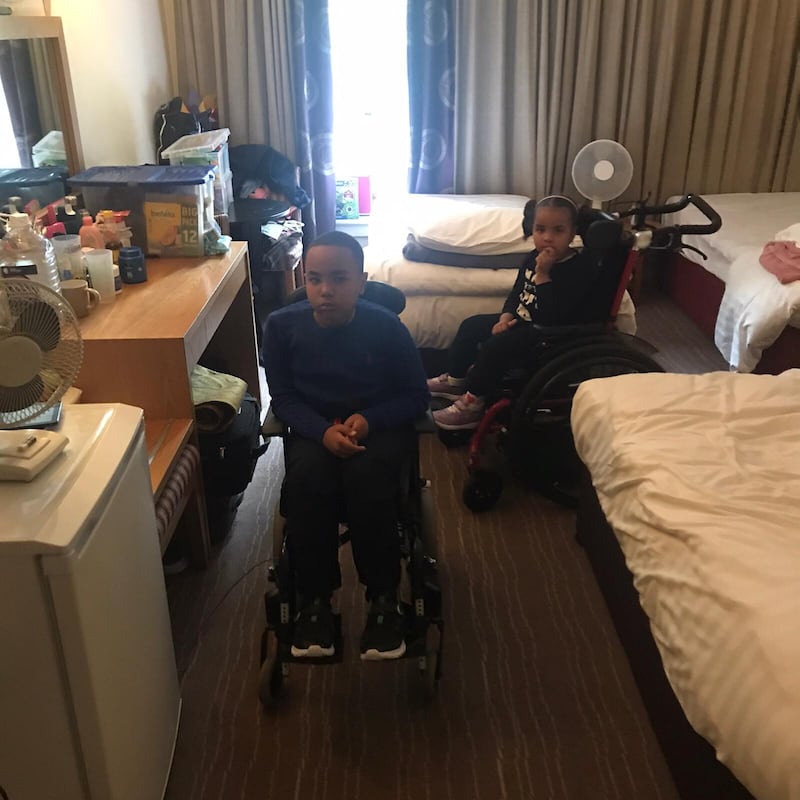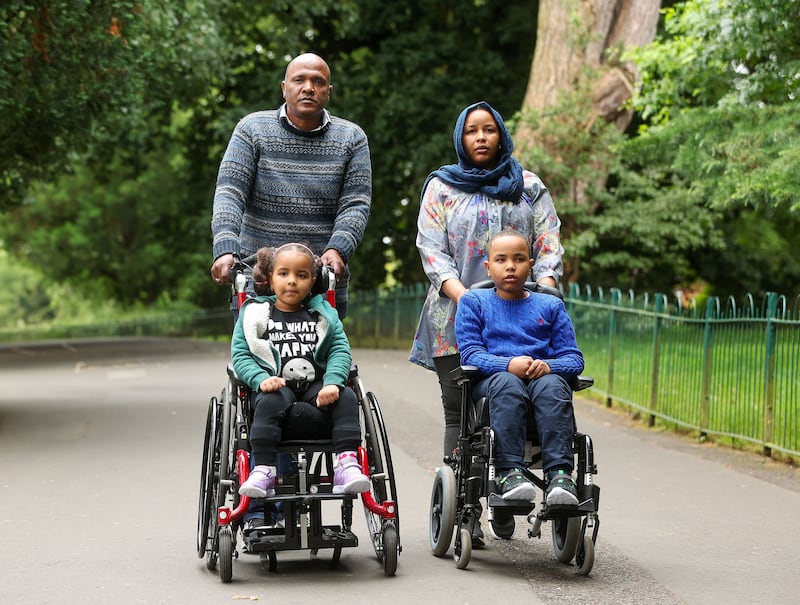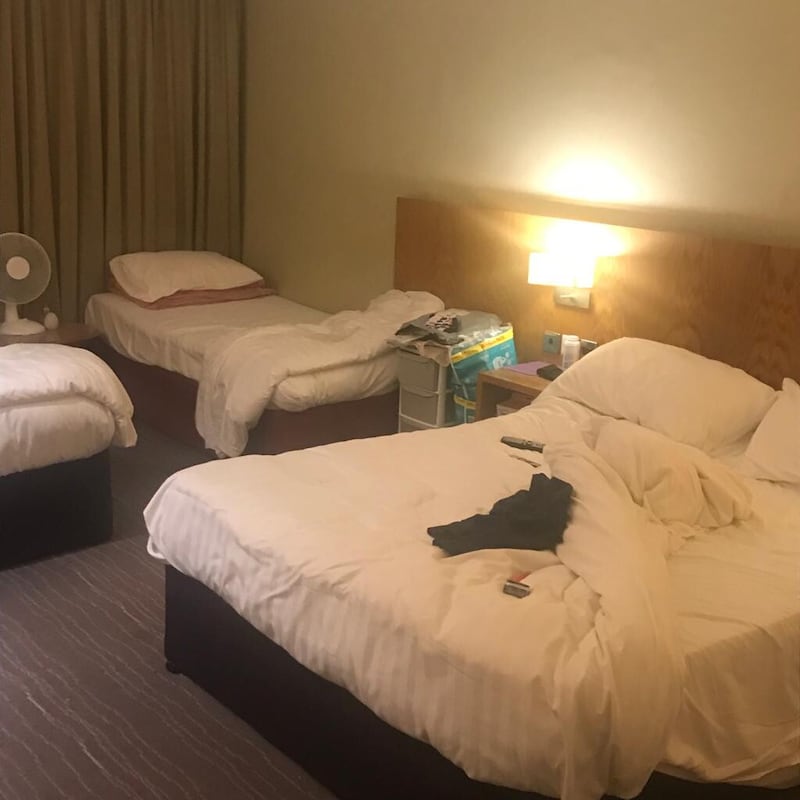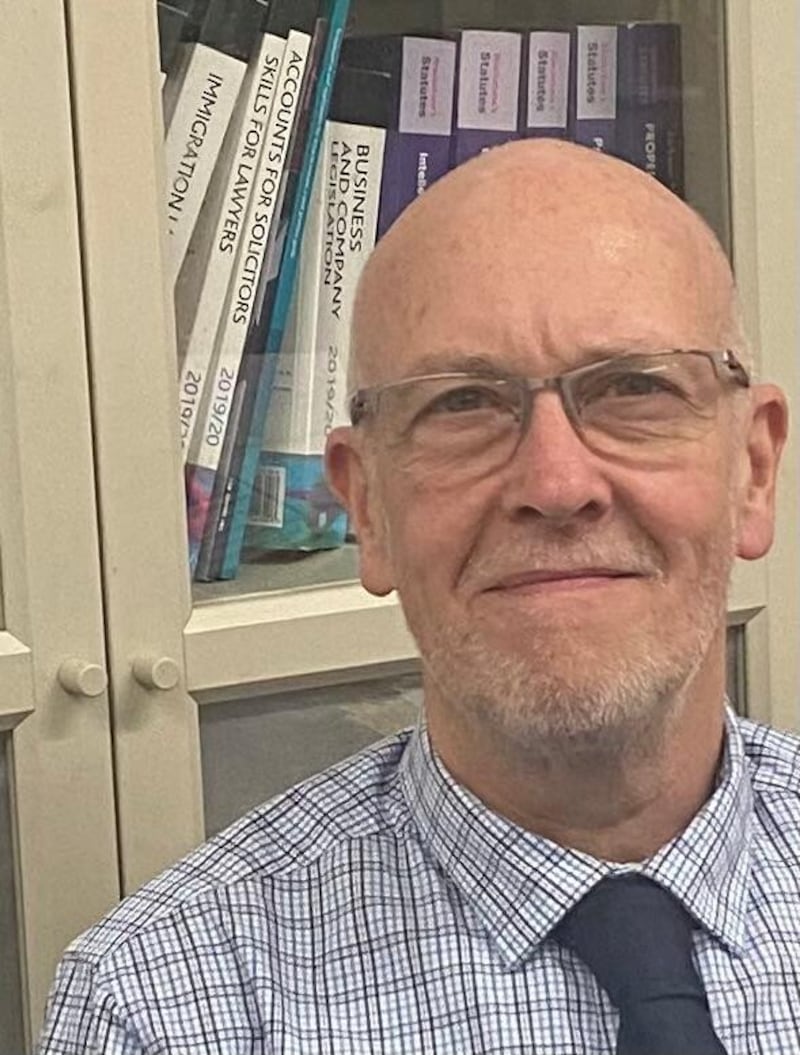The father of two disabled children whose family fled war-torn Sudan has hit out at their treatment since arriving in Belfast last year.
Amina Salahagin (5) and her eight-year-old brother Mohammad Salahagin have been living with their parents in a single room at a south Belfast hotel for the past 11 months.
The children suffer from a genetic condition that affects their muscles and are unable to walk.
Read More: Asylum seekers share their experiences of living in Northern Ireland
Belfast Met offering scholarships to asylum seekers living in Northern Ireland
They were forced to flee their home with their parents Salahagin Jadallah and Sarah Omar Ahmad Gismasit last year.
Since arriving in the north the desperate family has been housed in cramped conditions at the Wellington Park Hotel in south Belfast.

The room has been provided by a private company which is contracted by the British Home Office to supply accommodation for asylum seekers.
Mr Jadallah said that neither of his children have attended school since they arrived in Belfast almost a year ago.

Speaking through an interpreter, Mr Jadallah highlighted the plight of his disabled children.
"I came here for protection and a good life but we are getting tired," he said.
"They (authorities) are not providing for my children.
"We don't have a social worker to help us care for the children, we don't have anyone to visit to ensure if we need anything, financial help, food for the kids, nothing at all."
Mr Jadallah said his children have been isolated due to their condition.
"It's a really bad environment because the other kids don't play with them, they are not very social," he said.
"We are unable to do any activities and their mental health is really bad."
Mr Jadallah added that he felt the medical attention received by his children has fallen short.
He also claimed that his children were only provided with vital medicines last month.
He added that his children also have special dietary needs connected to their treatment, which are not being met.
"They (his children) can't do anything and even the treatment is really bad," he said.
"Recently, they just got their medicine, after 11 months.
"I am very worried and very scared about this situation getting worse for my children.
"If nobody is talking to them or doing activities or helping in their lives, what's going to happen?"
Mr Jadallah said his own living conditions are also difficult.
"I don't sleep at all at night," he said.
"I am always waking up with the children.
"My daughter and my son waken me in the middle of the night and ask to be turned over.
"Because they are disabled they cannot do anything."
Mr Jadallah revealed how he paid $8,000 to people smugglers to help him and his family escape from their former home in Khartoum, the capital of Sudan.
"The journey was a little bit scary and nervous because they were smugglers and all they want is money, not more than that," he said.
"And if you do something wrong you are scared you will be killed.
"I was silent, nervous, scared until we arrived in Dublin."
The family later made their way to Belfast and are now seeking asylum.

Mr Jadallah also spoke of his hope that his family can be moved to a properly equipped house in Belfast close to the Royal Victoria Hospital, where his children are being treated.

His solicitor John McStravick, of JMS Solicitors, recently took over the case and immediately threatened legal action.
It is understood that only limited progress has been made.
"In this case and others it is complete derogation of the Home Office duties under the Refugee Convention and ECHR (European Convention on Human Rights) and is ultimately a systemic breakdown in relation to the Home Office dealings with asylum seekers," he said.
A spokeswoman for the Home Office said: “We are committed to ensuring the safety and wellbeing of those in our care, including children with disabilities.
“Asylum accommodation providers are contractually obliged to ensure accommodation is accessible for disabled people and where concerns are raised we work with providers to ensure they are addressed.”








